Rewards & Consequences
Rules
At Tyndale, we expect our children to be:
1) Ready
2) Respectful
3) Safe
in everything that they do.
It is that simple, easy to remember and doesn't involve any other rules!
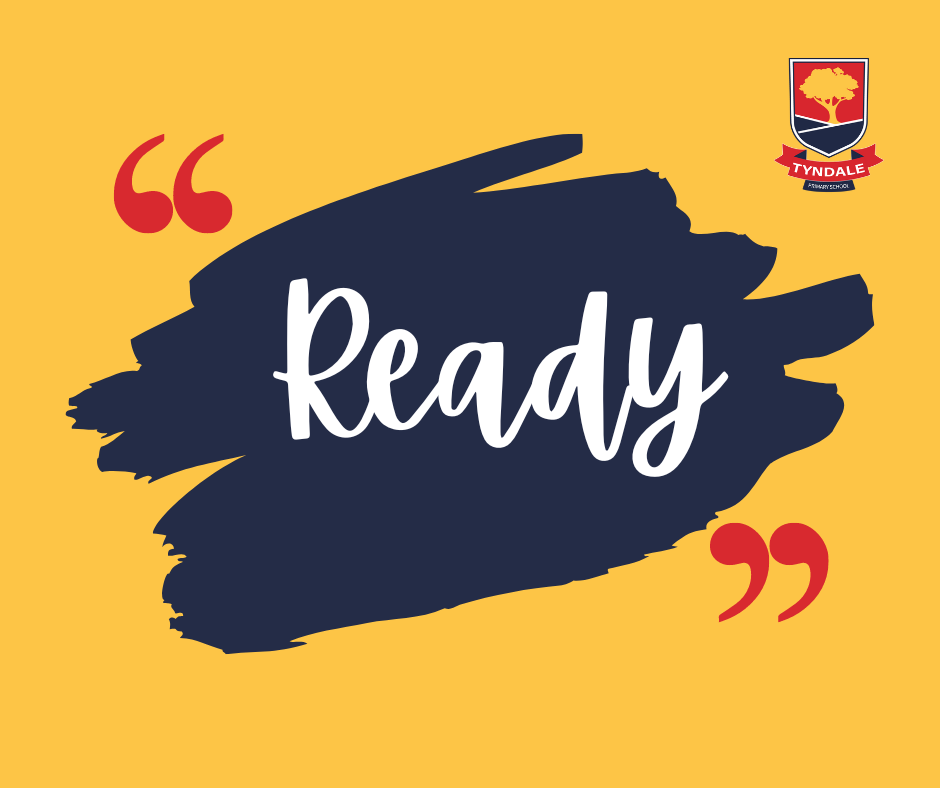
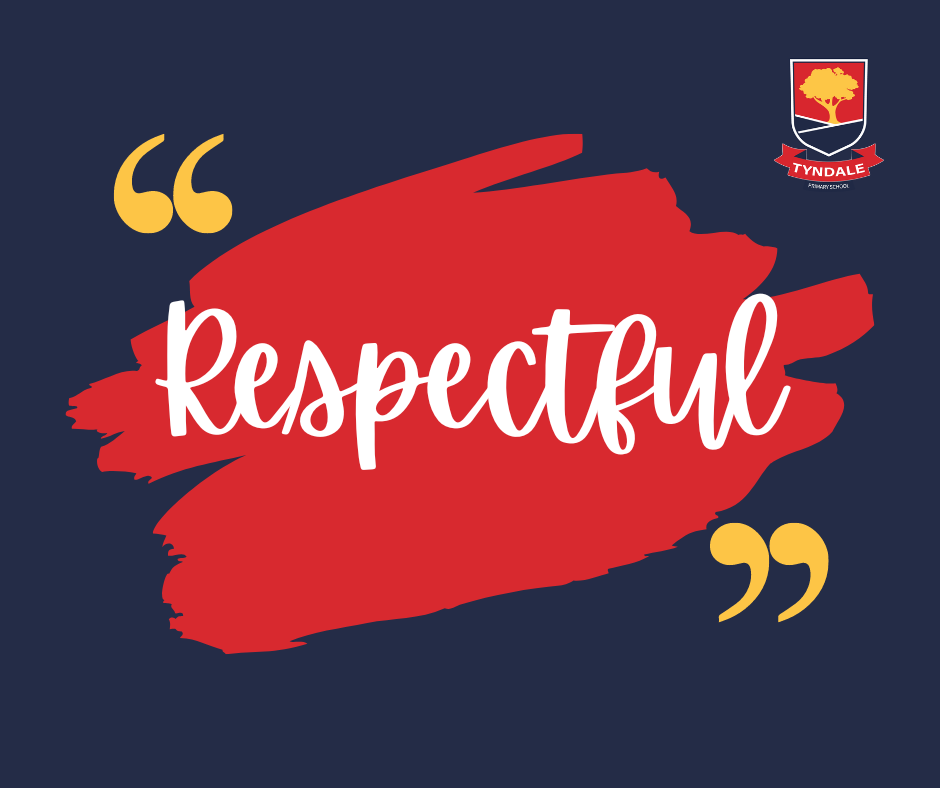
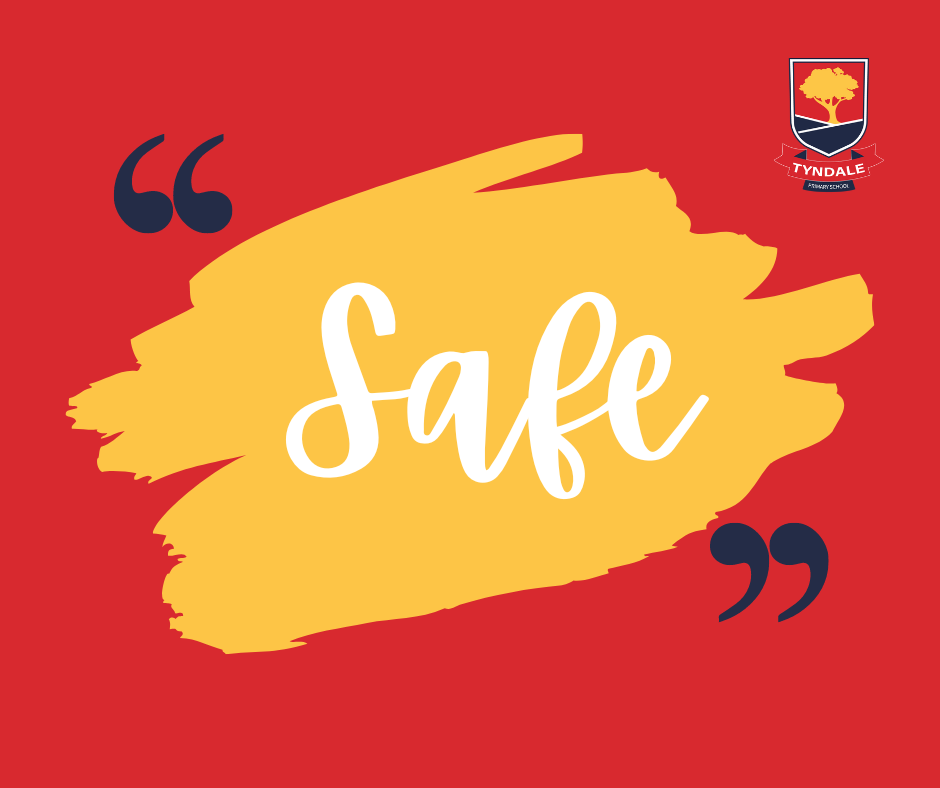
Behaviour Rewards
Birthday dress down days!
If it's your child's birthday, they can wear non-school uniform. If their birthday falls in the half term or a weekend, just agree on a day when you'd like to use this treat with your child's class teacher.

End of Term Reward
Every pupil is given a 'Treat Token Recording Card', where they can record their tokens. Pupils need a total of 10 tokens to be eligible to participate in the end of term reward! There are a variety of ways to warn treat tokens which make it a reward accessible to all pupils!
Dojos and Golden Coins
Dojos are awarded for behaviour that impresses us! Good manners, showing us the learning powers in action or going above and beyond being ready, respectful and safe. Dojos are recorded on our class dojo page and 10 dojo points can be awarded for a golden coin. Golden coins can then be exchanged for prizes for sale in our Tyndale Express Shop!
![]()
Postcards and Positive Phone Calls
All staff members will award 1 postcard a week to any pupil of their choice to let the child and their family know what impressed that member of staff that week. They will also take some time to call the family of anyone in the school each week to inform them of how their child made their day.
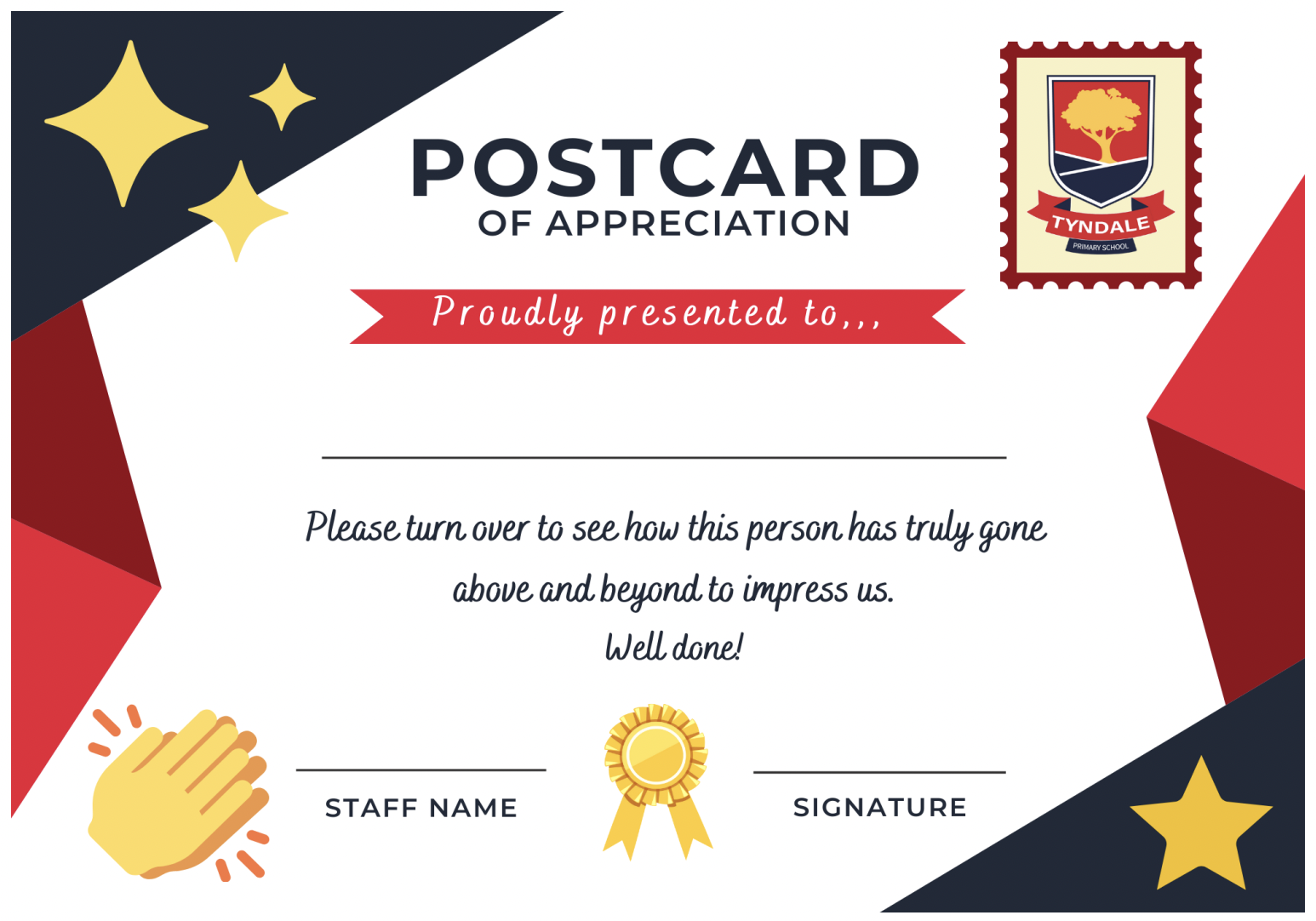
Peer Award
Any child can award their peer with a peer award if they spot something that impresses them or makes their day! All children are given support to identify and articulate what specifically they are awarding their peer for and how that made their day.

Star of the Week
The Headship Team will award this certificate in celebration assembly to one member of each class each week as nominated by the class teacher. This award is given when a pupil goes truly above and beyond what is expected of a Tyndale pupil.
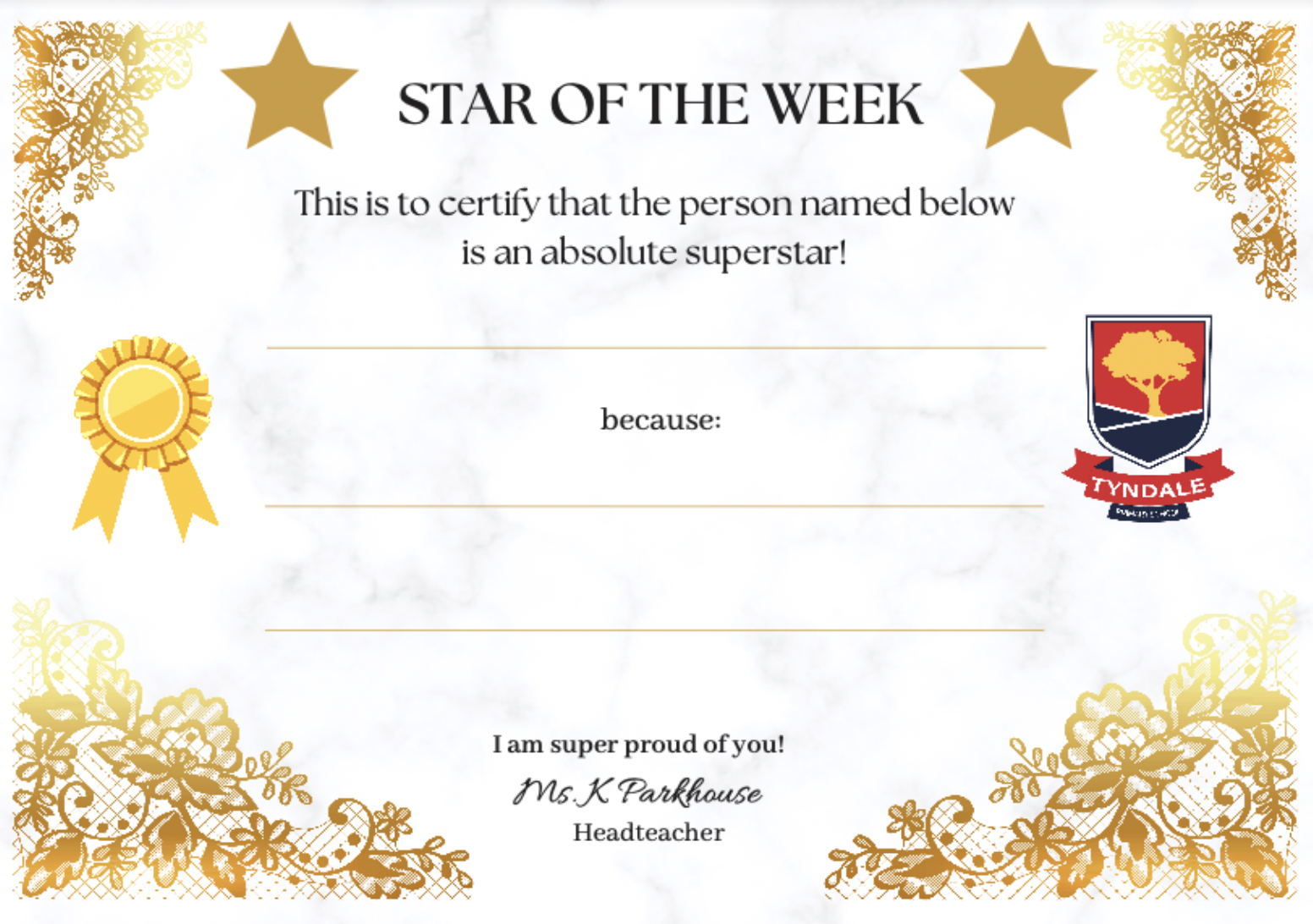
Reading Rockstar
This award is presented in celebration assembly by the class teacher to all pupils who read for 5 or more days at home that week.
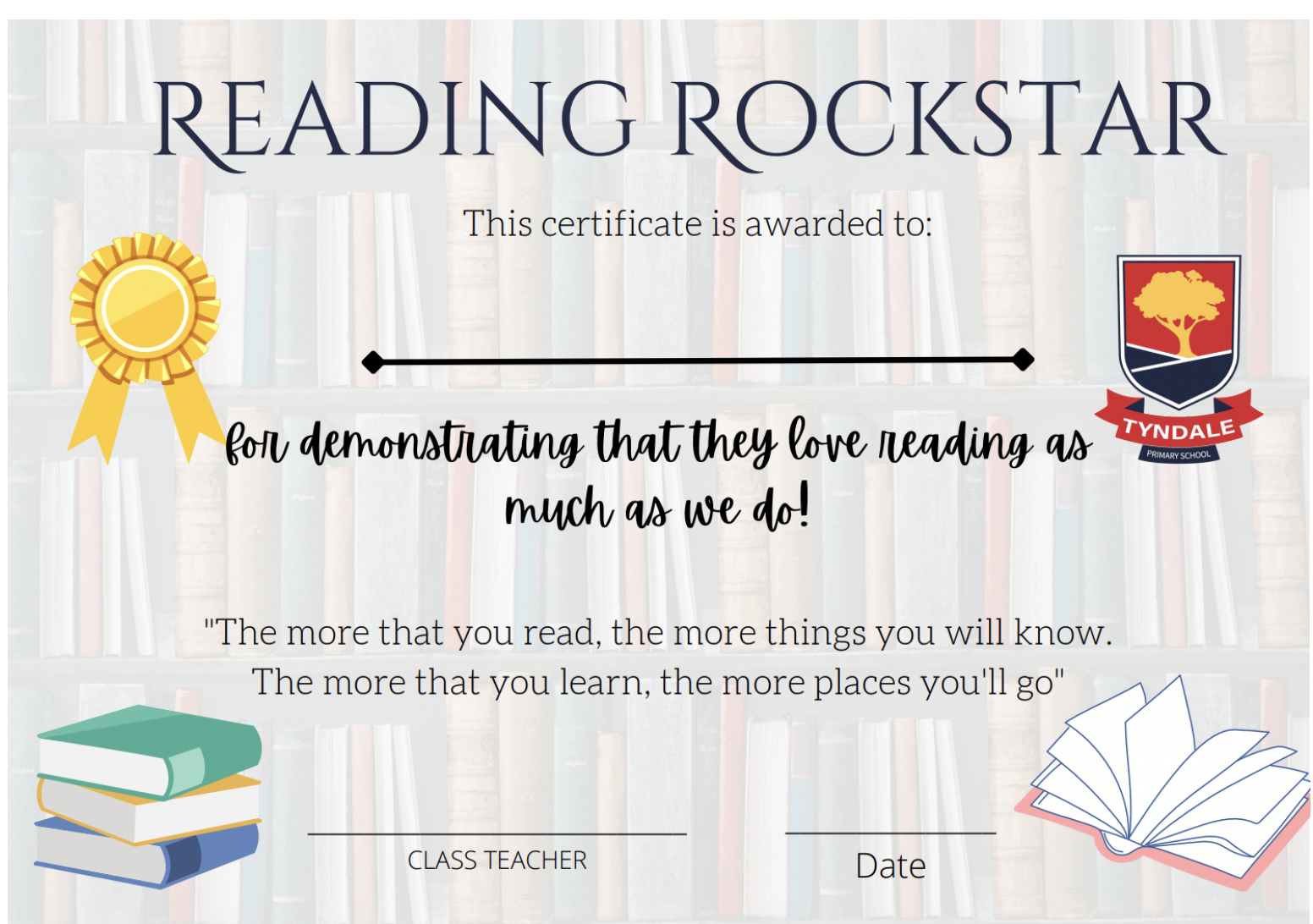
Dojo Champion
This is awarded by the class teacher in celebration assembly each week to the pupil in the class who earned the most dojo's that week.

Learning Hero Certificate
Pupils who demonstrate that they are being Ambitious, Collaborative, Resilient or Independent will be awarded the Learning Hero certificate in celebration assembly. If pupils can show in their lessons that week that they are Ambitious like Ade, or Collaborative like Katherine, Resilient like Richard or Independent like Ida, they will be in with a chance of winning the weekly learning hero certificate and trophy! The trophy will be on display in the child's class for the remainder of the week and they can award it to the next winner in the following assembly!
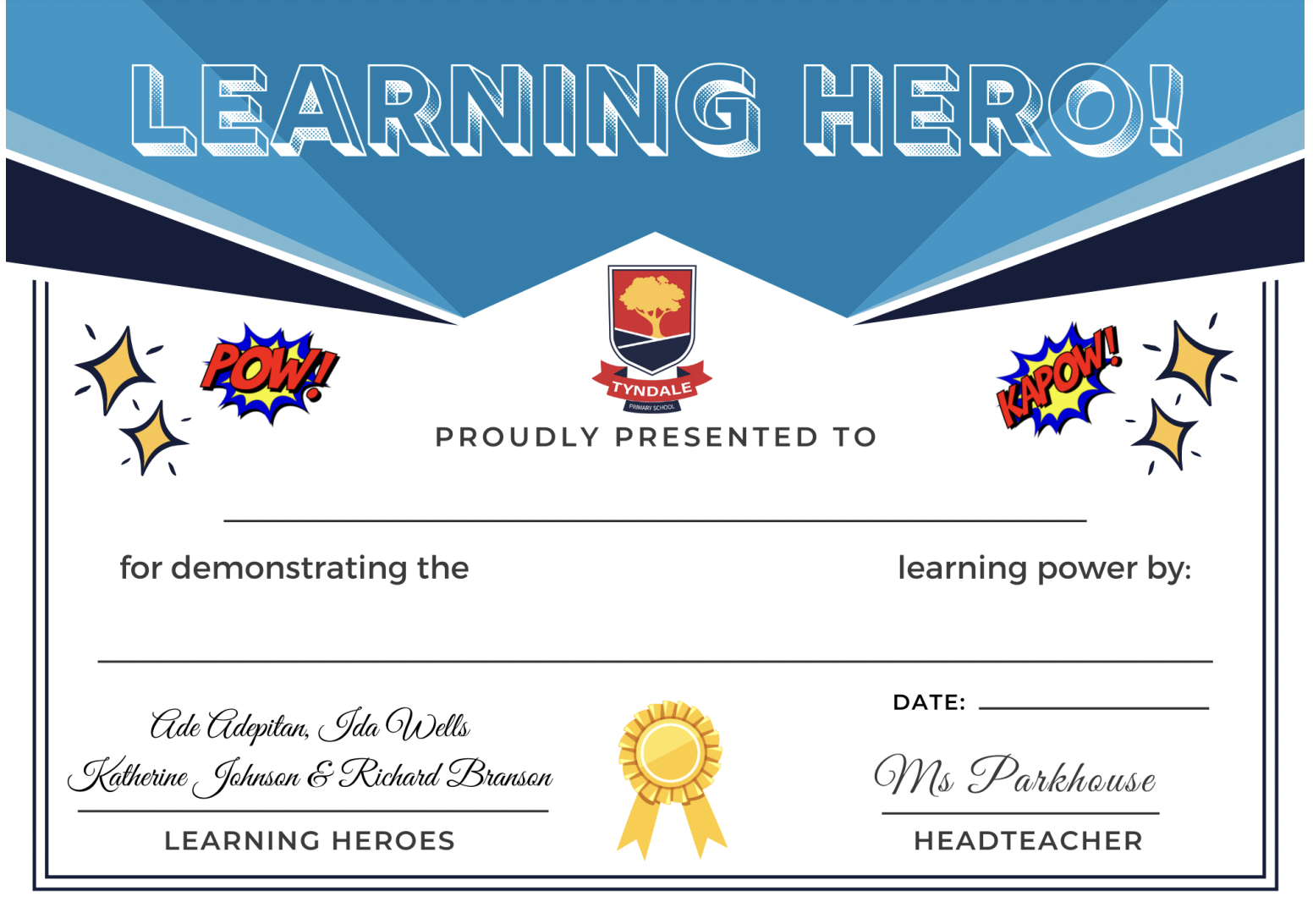
Hot Chocolate Monday
Pupils who have been recognised for good manners, will be in with a chance of winning an invitation to join the Headteacher/SLT member for a hot chocolate on a Monday. Delicious!
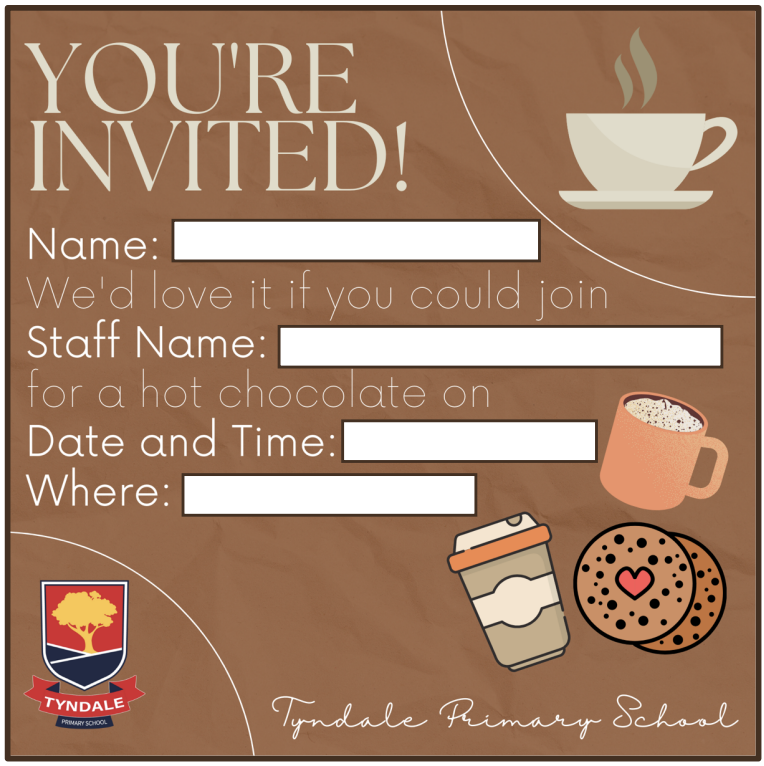
Termly Trophies
At the end of each term, we will award trophies to recognise the following things:
- Risk Taker
- Golden Manners
- Positivity
- Reading
- Performing Arts
- Kindness
- Sport
- Leadership
The trophies can be taken home for the half-term and will be exchanged upon the child's return for a medal that they can keep!
Pupil Societies
Pupils will have the chance to represent our school by joining one of the following societies. When enroled into the society, they can wear their badge with pride on their ties and keep their certificate which gives proof of membership.
Our pupil societies are:
- The Learning Army
- Anti Bullying
- School Council and Captains
- Sports Ambassadors
- Eco Warriors
- Class Ambassadors
- Events Planners
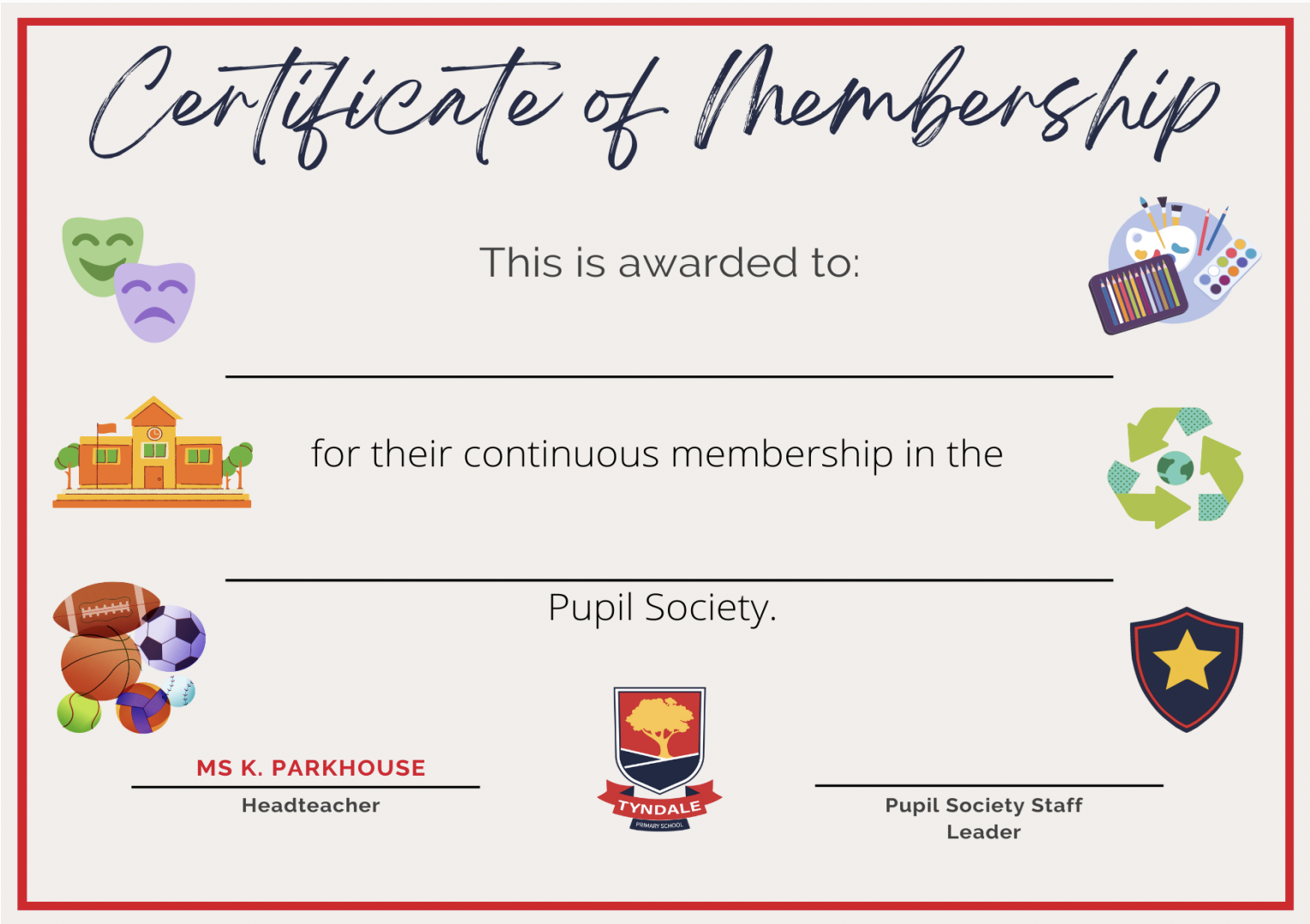
Behaviour Escalations
We recognise that clear structures of predictable outcomes have the best impact on behaviour. Our school’s principles for behaviour sets out the rules, relentless routines and visible consistencies that all children and staff follow.
We recognise that it is important to teach our children what great behaviour looks like and to support them in making the right decisions. However, we realise that there are times that children struggle to make the right choice and need us to work with them to co-regulate their behaviour.
The diagram below sets out the steps that we will take with a pupil to help them regulate their behaviour, as well as the sanctions that will be put in place when needed.
Please note the different processes on the diagram for KS1 and KS2 when it gets further down the ladder.
To note: we do not share the ladder with the children, it is just a tool for us as adults to see the process set out clearly.
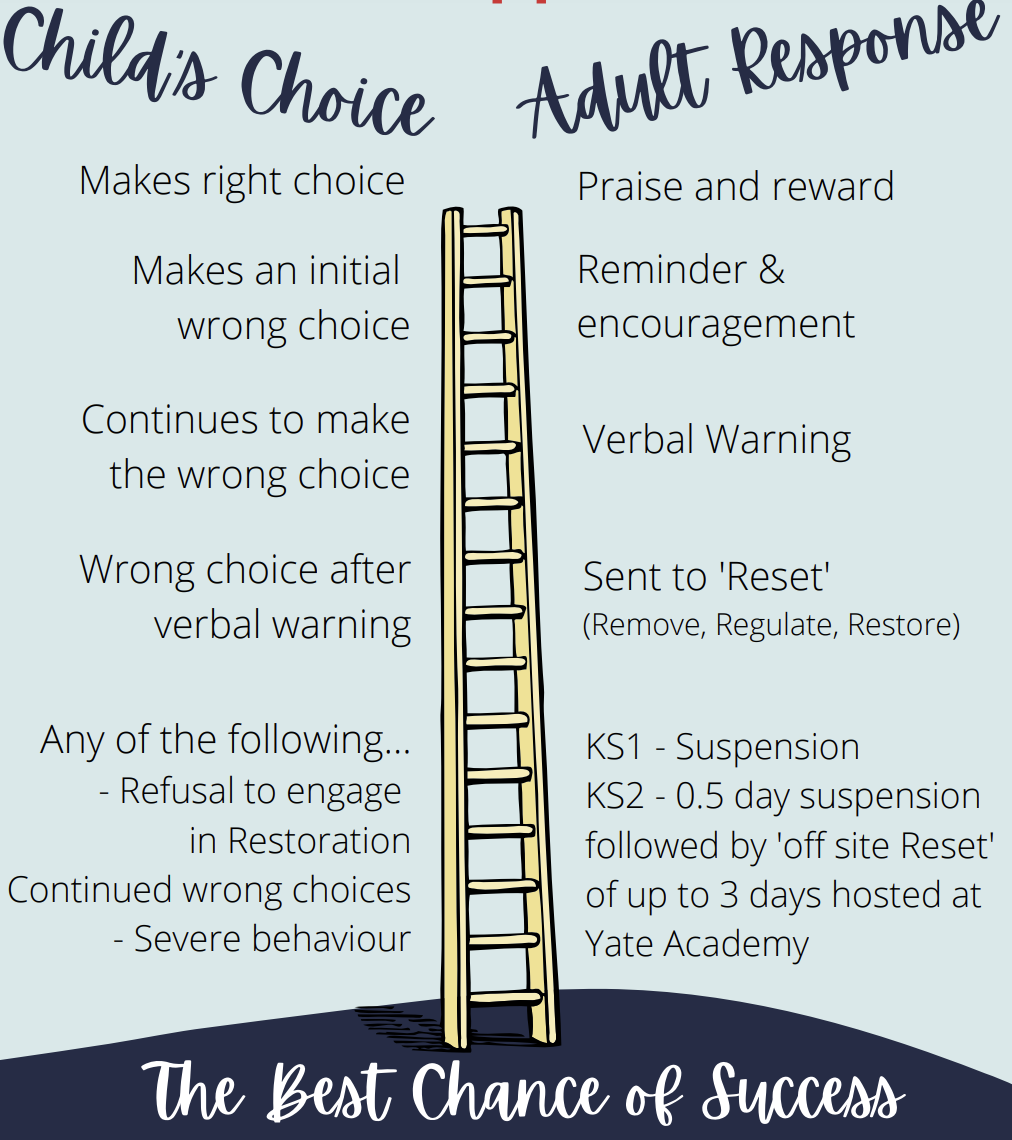
Break and Lunch Times
At break and lunch times, we provide lots of equipment for children to use, music and a space for children to play and enjoy. To support children to behave at break and lunch times, we have lunchtime supervisor rewards - certificates, Lunchtime Heroes Golden Table Invites (where children get to sit on a 'golden table' at the end of a week with a friend), and stickers. When a child makes a wrong choice, they are given a reminder and encouraged to make the right choice. Following this, if a child continues to make the wrong choice, they are given a 'rethink' where they are supported by an adult to understand why the choices they are making are wrong and are required to stand by that adult for two minutes. Following this, if a child continues to make wrong choices, they receive a 10-minute time out. If a child continues to make wrong choices, a member of the senior leadership team will be involved.

Restorative Practice
Our school strongly believes in providing opportunities for restorative conversations and opportunities for reflection to help improve behaviour. While the practices might change slightly for individual pupils, a basic script is adopted by all our adults and used with the majority of all our children.
Below is an example script that will be used with pupils to scaffold conversations with children. It follows the principles set out in Paul Dix’s book, When the Adults Change, Everything Changes.
**Intervention Script - Effective 30 second intervention Gentle approach, personal, non-threatening, side on, eye level or lower.
I noticed you are… (having trouble getting started/wondering around the classroom)
It was the rule about… (lining up/staying on task/being safe) that you broke.
You have chosen to… (move to the back/catch up with your work).
Do you remember last week when you… (arrived on time every day/got a positive postcard)?
That is who I need to see today… Look around the room with a view to catch somebody following the rules. Walk away; allow him/her time to decide what to do next. If there are comments as you walk away, write them down and follow up later.
Thank you for listening (Then give the child some take up time).
Conversation Following a Reset:
We use the following conversation structure with a child and member of staff following the completed period of reset:
1. What's happened?
2. What were your choices at the time?
3. Who else was affected by your behaviour?
4. What have you thought since?
5. How can we make this right now?
Age appropriate resources will be used to allow all pupils to access a version of this conversation that is understandable to the child.


